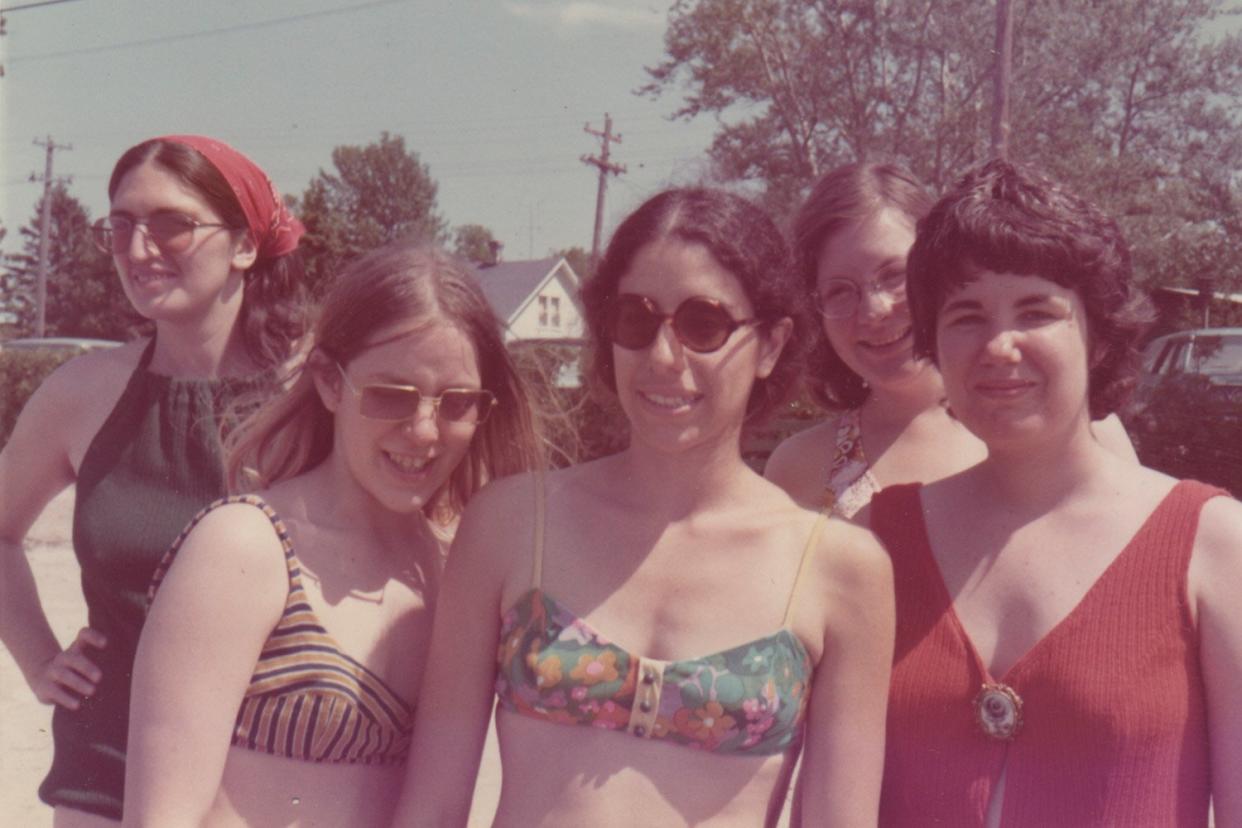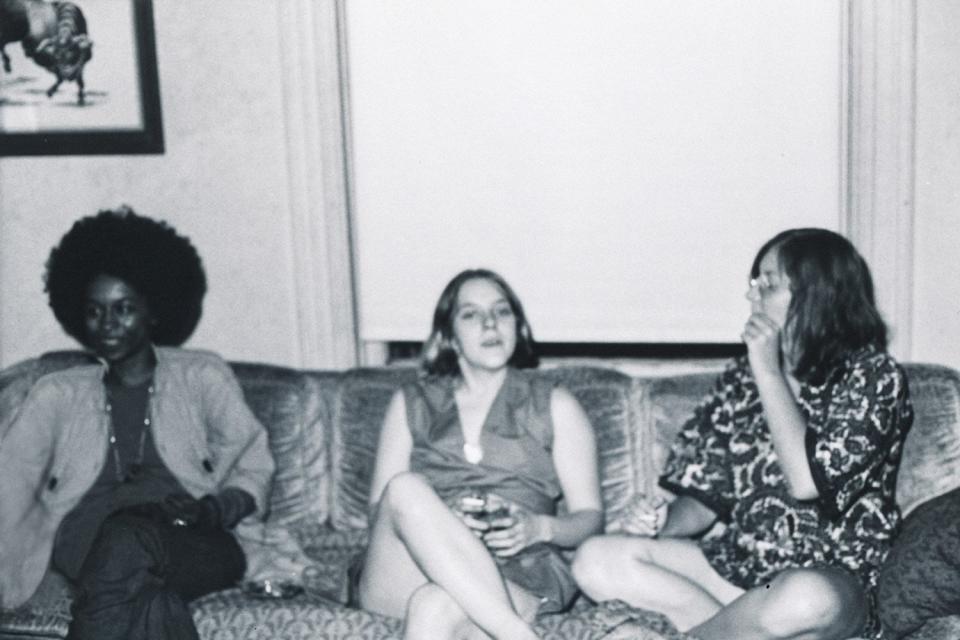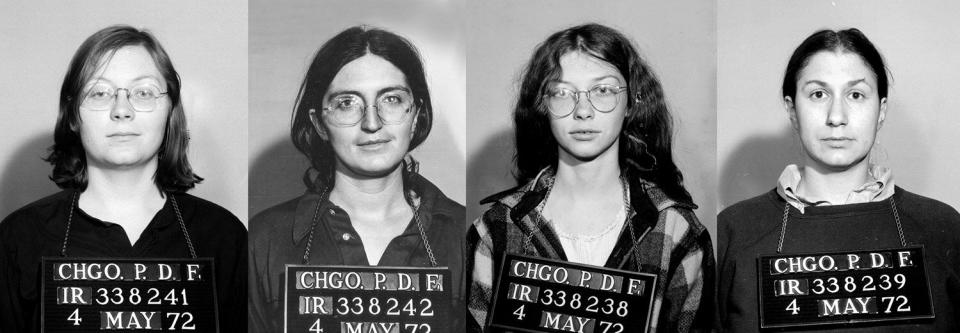Before Roe , These Women Ran an Underground Abortion Clinic: 'It Was Important Work'

HBO The Janes
Diane Stevens knew going in that what she and the other members of Jane were doing — helping women get abortions in 1970's Chicago — was completely illegal. But as someone who recently had an abortion herself, she "felt it was important work," and worth the risk.
"That wasn't relevant to me," Stevens tells PEOPLE. "I felt that it was a good service, so I wasn't worried about the legality of it."
Stevens is one of the seven women who ran Jane, an underground abortion clinic to help women get the procedure before the landmark Roe v. Wade decision made it a constitutional right nationwide — the focus of a new HBO documentary, premiering June 8, called The Janes. She, along with Eileen Smith, Martha Scott and other activists had a well-established set-up — they posted signs around the city that read, "Pregnant? Call Jane" with their number.
The women who came in were of all ages, races and backgrounds — many were like Stevens, who opted for an abortion in California, where they were legal if the pregnancy was considered a danger to a woman's health, because she "knew I couldn't take care of a child." Members of Jane would counsel the women on exactly how the procedure would go, before performing the abortions. Over around five years, they helped an estimated 11,000 women in Chicago get abortions.

HBO Members of Jane
RELATED: See Which States Have Abortion Restrictions in Place — and What Would Change if Roe Is Overturned
Scott first learned of the group on the playground — the mom of 4 children under 5 years old had been looking for "some access to adult interaction," she tells PEOPLE. A mom friend had been volunteering at the National Organization for Women but wanted to do something that had more of an immediate impact. "The abortion counseling service was much more directly useful," says Scott, 80. "This was pertinent to people who actually were in trouble, in a situation where they had to do illegal things that might be very, very dangerous. She asked me if I could join, and I said sure."
So in 1969 she started counseling women in her home. "One woman after another was talking about how she did not have any control over her life," Scott recalls. "The whole idea was to be as warm and as intimate as possible on the assumption that no one went this easily, and maybe we could help make the transition easier."
But within a year she was actually performing the procedures. "I never stopped counseling but I became an abortionist," she says. Although she had no medical training, she was able to pick up the skills.
"Those of us who had sat through or seen a lot of procedures felt comfortable doing this," she says. "I don't mean to diminish how hard it was mechanically or physically to do, but it's not open heart surgery."
She also liked the politics of it. "It was clear that women had so little autonomy and agency," she says. "We wanted it to be a political action."
Then, in 1972, police were tipped off to their operation and raided the apartment where Jane was based. Scott, Smith and Stevens, along with the other women, were all arrested and charged with violating Illinois' ban on abortions.

Members of Jane
It wasn't a huge surprise to the members. "I'm a person that believes in the logical consequences of your actions," Stevens says. They got out on bail and were working with a lawyer on their case, but not too long after, in January 1973, the Supreme Court determined that the constitution guaranteed the right to abortion and their case was dismissed. Jane was no longer needed.
With the case dismissed and abortion now legal nationwide, Stevens went on her way.
"After Roe v. Wade, I thought that the problem had been solved and that there was going to be access to abortion for women that needed it," she says. "I thought it was over, and I went on just to have just a regular life like anybody would. I had children. I worked, married, just regular sort of normal life, and I wasn't really involved in political activity."
RELATED: 33 Celebrities Who Have Shared Their Abortion Stories to Help Women Feel Less Alone
But in the last few years, Stevens moved to Charlotte, North Carolina, and quickly saw that while abortion was legal by law, it wasn't treated that way everywhere.
"I became aware of how women were harassed when they were seeking abortions here in Charlotte at the clinics," she says. "There is a man who would bring a 6-ft. ladder and put it up next to the fence surrounding the parking lot so he could stand on that ladder and yell at women in the parking lot. The cars drive into the parking lot and they have to go through this whole circus of people holding rosaries, people waving Bibles and yelling at them. It just contributes to this whole awful atmosphere, and this is in a place where abortion is legal."
RELATED VIDEO: 'I Pray for All ... Who Will Suffer': Many Stars Are Outraged at Sweeping Alabama Abortion Ban
Stevens started volunteering as a clinic escort, walking abortion seekers up to the door. And meanwhile, she and the other Jane members — "my best friends," Stevens says — have watched as conservative justices like Brett Kavanaugh and Amy Coney Barrett join the Supreme Court and Republican-led states strip away abortion rights.
"We've begun seeing clearer and clearer the writing on the wall," Stevens says.
RELATED: Abortions Are Still Legal in the U.S. — but Here's What Could Happen If Roe Is Overturned
And now, as the Supreme Court appears poised to reverse Roe and the right to abortion this month, "it's just been horrible," Stevens says. They filmed The Janes soon after Kavanaugh was confirmed, and were wrapping filming when former Justice Ruth Bader Ginsberg, a champion of abortion rights, died. They wonder now, if Roe is overturned, if groups like Jane will come back.
"What scares me about the new abortion laws is that they criminalize everything: the woman, the practitioner and the helper, and that will discourage people from seeking things that would be helpful for them," says Scott. "People who don't have resources to go to another state will of course be back in the situation of the desperation of needing an abortion and really not knowing what to do."
"I feel furious and frustrated," Eileen Smith, 72, agrees. "I guess I had hoped that common sense and decency would win out. I am angry that the freedom to decide when and if to have children is being denied. Most people in our country care about this and have felt that these decisions are personal and private. To have the Supreme Court not protect this part of health care is disrespectful and appalling."
After the news broke that Roe may be overturned and protesters took to the streets, Smith says she "felt really heartened to see all of the people demonstrating for abortion rights, people of different ages and backgrounds coming together."
Stevens, Smith and Scott, who are still good friends, say how much of an impact individuals can have on the system.
"I think the big message from the movie is that we were just ordinary people that did this, and ordinary people can do amazing things," Stevens says. "They just get together and they can do it. That's what we're hoping for, is that we have inspired or that we will inspire groups of people to do what needs to be done."
Echoes Scott: "We did it not because we were especially heroic or smarter than anybody else or more tuned in. We did it because we thought it was necessary."
The Janes premieres on HBO June 8

